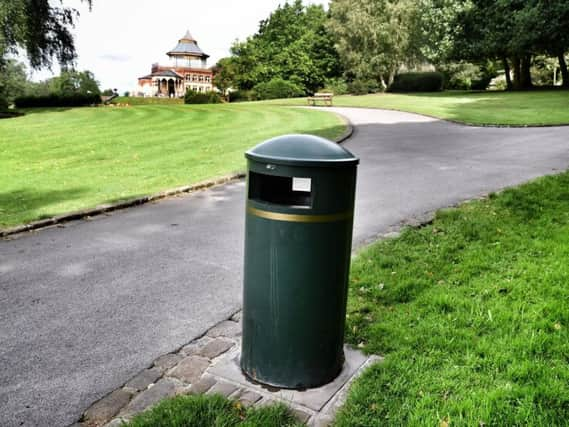Wigan's wardens handed out an average of just one fine each for dog fouling last year


That means the town’s four full-time dog wardens - who also work as pest controllers - handed out an average of just one fine each.
Since 2010, the council has dealt with 18,000 complaints but has handed out just 243 fines, leading to concern from opposition leader Coun Michael Winstanley.
Advertisement
Hide AdAdvertisement
Hide AdHe said the figures “show a worrying trend”, with the number of fines falling from 107 in 2015/16, and added: “This is a real concern for many residents and the behaviour of dog owners will only change if they can see a consequence of their actions.
“The council do need to be doing more in this direction. To have just four fines handed out last year shows that whatever approach they currently have is not working.
“Only four years ago they handed out 107 fines, which shows a much more proactive approach. I know many dog owners who are very responsible who clean up after their pets and they are extremely frustrated when they see irresponsible dog owners who aren’t cleaning up after their pets.
“A proper approach to this would also be welcomed by responsible dog owners who do the right thing.”
Advertisement
Hide AdAdvertisement
Hide AdDave Lyon, the council’s assistant director for the environment, said the authority recognises that “dog fouling is something that our communities and residents feel very strongly about”.
He said: “Responsible dog ownership is really important, not only for the dog but for the environment as well. The current powers under the Dog Fouling of Land Act are very labour intensive because the authorised enforcement officer has to actually see the dog foul, which can be over in seconds.
“Information provided by residents is vital in our ability to pinpoint hotspots and promote responsible dog ownership in these targeted areas.”
Mr Lyon said special powers could soon be brought in under the guise of a Public Space Protection Order (PSPO), which has been approved by senior councillors and is set to go out to public consultation.
Advertisement
Hide AdAdvertisement
Hide AdSpecific details of the proposed PSPO were not given, but Mr Lyon said dog fouling hotspots could be targeted. He added: “These new powers will allow us to use a different approach and improve our enforcement capability.
“It will be proactive and allow officers to approach dog owners at the point of seeing them rather than waiting for the act to happen.”
Councils across the north west have looked at a number of different tactics in recent years in a bid to tackle the scourge of dog fouling.
In Hyndburn in east Lancashire, council chiefs launched a radical ‘pooper snooper’ scheme, which saw amateur sleuths paid for taking pictures of guilty parties and reporting their details - with the first resident feeling their first collar not long after.
Advertisement
Hide AdAdvertisement
Hide AdWyre Council on the Fylde coast considered DNA testing dog muck in a bid to trace it back to its shamed owner before later scrapping the idea.
It has since drafted in private enforcers who handed out 17 fines in a three-month period earlier this year. In contrast, council workers have caught just 55 people in the past five years.
Coun David Henderson, the leader of Wyre Council, said the authority wanted to have a visible deterrent and suggested other councils could follow suit.
He said: “There’s nothing stopping any other councils doing exactly the same.
Advertisement
Hide AdAdvertisement
Hide Ad“Instances of dog fouling increase in winter because it goes dark quicker. People who have been approached use the excuse of, ‘I couldn’t find it’.
“We are hoping we can stop that because the wardens will be out there.”
South Ribble Council in central Lancashire, which failed to hand out a single dog fouling fine last year despite launching a crackdown, took to spray-painting muck orange to “bring people’s attention to this rather disgusting issue”.
Coun Martin Boardman, leader of the Conservative opposition at Chorley Council, which had double the number of dog wardens in 2006 than it does now and also handed out zero fines last year, said: “What we are finding is local communities have started tackling the issues themselves.”